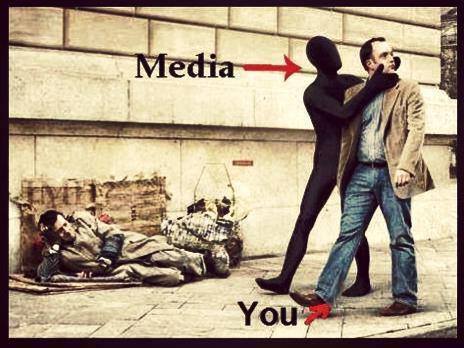Subhead 1: Major news sources generally spend a lot of their time and resources over exaggerating points in stories that are irrelevant to current events or are invalid to the specific story.
Subhead 2: News stations often focus more on ratings and viewers than about finding the truth in a story.
The expert I will be interviewing is James Neustadt, Director of Communications and Community Relations at WSSC, and former member of Special Products Producer at NBC4. I have contacted him and plan on interviewing him next week. One question I will ask is," While at NBC4, did you ever see any distorted information for the sake of producing high ratings over valid information?"
http://www.huffingtonpost.com/news/media-sensationalism/
Wednesday, April 22, 2015
Tuesday, April 14, 2015
Photos of Sensationalism

The Second picture is the most explanatory because it describes the relationship between the media and public. It's captions label what both people represent, and the picture itself reports what the idea of sensationalism is. By showing the homeless man, the viewer understands what issue is being addressed. The viewer can also see how the man labeled as media is distracting the other man labeled you. This shows that the media is not allowing, "you" or the public to see the actual issue. The people are instead subjected solely to what is reported by the media, and not by a what they can see.
The first picture is sensationalism, but it only shows the caption and what the problem is. It does not actually show what is happening, just the reporting. It fails to explain how ebola is as bad as Al-qaeda, as well as comparing a disease to a terrorist organization to blow the story out of proportion. They use a very well known, disliked target to promote the interest of their own story. there is no link between the two. Even if it is just a metaphoric comparison, it is unjust to report to the public that a disease can be demonized the same way as terrorism.
The third picture shows sensationalism because it shows a story that is meaningless. Britney Spears is a famous singer, but what she does with her hair is unimportant to most people, and to say her shaving her head is, "shear madness" is mislabeling. By saying something is madness, lots of attention is drawn because it threatens the stability of society. However, this exact article, does not threaten anyone, and is inappropriately used.
Subscribe to:
Comments (Atom)